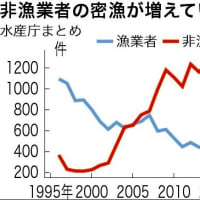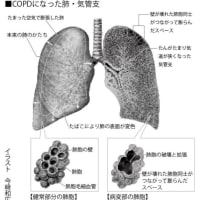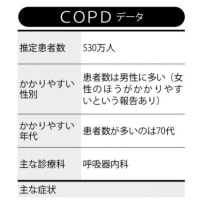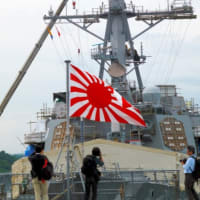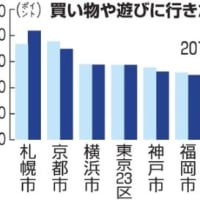今度の日曜は、TOEIC公開試験の日です。INDECの会員諸君も多数受験いたします。ひょっとすると、このブログをお読みの方にも受験予定の方がいらっしゃるかもしれません。
そこで、今週の「気になる英語表現」は、Washington Postの「日本の憲法草案、軍隊を再定義」という記事を使って、直前特訓とまいります。このブログをTOEIC・TOEFL受験者の速読練習ならびにTOEICによく出る政治用語のまとめとして活用してくだされば、嬉しい限りです。
記事の内容は、この火曜日に自民党が結党50周年を記念して提出した憲法草案を論じたものです。内容については、当然のことながら、日本のマスコミを通じてよくご存知の方もいらっしゃることでしょう。ですが、そこはそれ。Washington Postがどのように考えているかを見てみるのも悪くありません。
本文568語。手頃な長さです。英文もそれほど難しくありません。3分以内で読めて、太字の単語の90%以上が判れば、TOEFLのセクション3で27点以上、TOEICのリーディング・セクションで450点以上取れる可能性が高まります。
それでは、どうぞ。
**********
Japan's Draft Charter Redefines Military
By Anthony Faiola
Washington Post Foreign Service
Wednesday, November 23, 2005; Page A16
TOKYO, Nov. 22 -- The governing Liberal Democratic Party on Tuesday released a draft revision of Japan's pacifist constitution that for the first time since World War II would recognize the country's armed forces as a fully functioning military.
The constitution, originally written by the United States after the defeat of Japan in 1945, would continue to reject war as an option. But the new draft would remove limitations on the country's 240,000-member Self-Defense Forces, which have been defined as being strictly limited to defending Japan's home islands.
The new military status would explicitly authorize Japanese participation in foreign peacekeeping efforts, although the country has sent small troop contingents on such missions, including about 600 soldiers now serving in a noncombat capacity with the United States in Iraq. The constitutional draft would broaden the government's ability to send forces overseas; such an order now requires special legislation in parliament.
The revision also opens the door to a broader interpretation of the constitution, permitting what some call "collective self-defense" -- or coming to the military aid of other countries. The most likely beneficiary would be Japan's closest ally, the United States, which has urged Japan to adopt such measures. Changes in Japan's constitutional status would have major significance in the region, particularly in the event of a conflict between China and the United States over Taiwan.
"In addition to activities needed for self-defense . . . the defense forces can take part in efforts to maintain international peace and security under international cooperation, as well as to keep fundamental public order in our country," the draft says.
The revised constitution, released on the 50th anniversary of the LDP's founding, faces major hurdles and may not be approved for at least a year. Parliamentary approval requires a two-thirds vote by both the lower and upper houses, and the debate is likely to be highly emotional. New Komeito, the LDP's coalition partner since 1999, favors new clauses and refinements, rather than major changes, in Article 9 of the constitution, which deals with the military.
After parliamentary approval, the draft would also require majority approval in a national referendum.
The release of the draft by the LDP, which has governed the country for most of the post-World War II era, marked a significant turning point in the crusade to give Japan a higher international profile, commensurate with its status as the world's second-largest economy.
"Today, a major step was taken toward the revision of the constitution," Taku Yamasaki, an LDP lawmaker and adviser to Prime Minister Junichiro Koizumi, told reporters.
The draft maintains language that defines the emperor of Japan, once revered as a divine being, as a symbol of the state. But the constitutional revision waters down the concept of separation of church and state, which would make it easier for prime ministers to visit Tokyo's Yasukuni Shrine honoring Japan's military dead, including World War II criminals. Koizumi's annual visits to Yasukuni have caused outrage in China and South Korea.
Officials in both those countries have expressed concern about the proposed constitutional language on the military, noting the rise to power of nationalist Japanese political leaders and a new sense of patriotism among the populace.
On Tuesday, the official New China News Agency described Japan's revision as a document "designed to provide legal support for its ambition of playing a greater political role on the global stage and of boosting the defense force's status."
**********
いかがでしたでしょうか。対訳は載せません。後編に載せた解説を手がかりに読み進めてください。(後編へ進むなら、ここをクリック)
☆なお、このブログだと英文の行末処理がうまく行っていないし、前編・後編に分けられている(これはgooブログだと字数制限があるからなのです)ので、読みにくいと思っていらっしゃる方は、INDECの姉妹ブログ映画と本と音楽にあふれた英語塾http://blog.indec.jp/に同じ内容の記事が読みやすい形で掲載しておりますので、そちらをどうぞご利用ください。
そこで、今週の「気になる英語表現」は、Washington Postの「日本の憲法草案、軍隊を再定義」という記事を使って、直前特訓とまいります。このブログをTOEIC・TOEFL受験者の速読練習ならびにTOEICによく出る政治用語のまとめとして活用してくだされば、嬉しい限りです。
記事の内容は、この火曜日に自民党が結党50周年を記念して提出した憲法草案を論じたものです。内容については、当然のことながら、日本のマスコミを通じてよくご存知の方もいらっしゃることでしょう。ですが、そこはそれ。Washington Postがどのように考えているかを見てみるのも悪くありません。
本文568語。手頃な長さです。英文もそれほど難しくありません。3分以内で読めて、太字の単語の90%以上が判れば、TOEFLのセクション3で27点以上、TOEICのリーディング・セクションで450点以上取れる可能性が高まります。
それでは、どうぞ。
**********
Japan's Draft Charter Redefines Military
By Anthony Faiola
Washington Post Foreign Service
Wednesday, November 23, 2005; Page A16
TOKYO, Nov. 22 -- The governing Liberal Democratic Party on Tuesday released a draft revision of Japan's pacifist constitution that for the first time since World War II would recognize the country's armed forces as a fully functioning military.
The constitution, originally written by the United States after the defeat of Japan in 1945, would continue to reject war as an option. But the new draft would remove limitations on the country's 240,000-member Self-Defense Forces, which have been defined as being strictly limited to defending Japan's home islands.
The new military status would explicitly authorize Japanese participation in foreign peacekeeping efforts, although the country has sent small troop contingents on such missions, including about 600 soldiers now serving in a noncombat capacity with the United States in Iraq. The constitutional draft would broaden the government's ability to send forces overseas; such an order now requires special legislation in parliament.
The revision also opens the door to a broader interpretation of the constitution, permitting what some call "collective self-defense" -- or coming to the military aid of other countries. The most likely beneficiary would be Japan's closest ally, the United States, which has urged Japan to adopt such measures. Changes in Japan's constitutional status would have major significance in the region, particularly in the event of a conflict between China and the United States over Taiwan.
"In addition to activities needed for self-defense . . . the defense forces can take part in efforts to maintain international peace and security under international cooperation, as well as to keep fundamental public order in our country," the draft says.
The revised constitution, released on the 50th anniversary of the LDP's founding, faces major hurdles and may not be approved for at least a year. Parliamentary approval requires a two-thirds vote by both the lower and upper houses, and the debate is likely to be highly emotional. New Komeito, the LDP's coalition partner since 1999, favors new clauses and refinements, rather than major changes, in Article 9 of the constitution, which deals with the military.
After parliamentary approval, the draft would also require majority approval in a national referendum.
The release of the draft by the LDP, which has governed the country for most of the post-World War II era, marked a significant turning point in the crusade to give Japan a higher international profile, commensurate with its status as the world's second-largest economy.
"Today, a major step was taken toward the revision of the constitution," Taku Yamasaki, an LDP lawmaker and adviser to Prime Minister Junichiro Koizumi, told reporters.
The draft maintains language that defines the emperor of Japan, once revered as a divine being, as a symbol of the state. But the constitutional revision waters down the concept of separation of church and state, which would make it easier for prime ministers to visit Tokyo's Yasukuni Shrine honoring Japan's military dead, including World War II criminals. Koizumi's annual visits to Yasukuni have caused outrage in China and South Korea.
Officials in both those countries have expressed concern about the proposed constitutional language on the military, noting the rise to power of nationalist Japanese political leaders and a new sense of patriotism among the populace.
On Tuesday, the official New China News Agency described Japan's revision as a document "designed to provide legal support for its ambition of playing a greater political role on the global stage and of boosting the defense force's status."
**********
いかがでしたでしょうか。対訳は載せません。後編に載せた解説を手がかりに読み進めてください。(後編へ進むなら、ここをクリック)
☆なお、このブログだと英文の行末処理がうまく行っていないし、前編・後編に分けられている(これはgooブログだと字数制限があるからなのです)ので、読みにくいと思っていらっしゃる方は、INDECの姉妹ブログ映画と本と音楽にあふれた英語塾http://blog.indec.jp/に同じ内容の記事が読みやすい形で掲載しておりますので、そちらをどうぞご利用ください。











